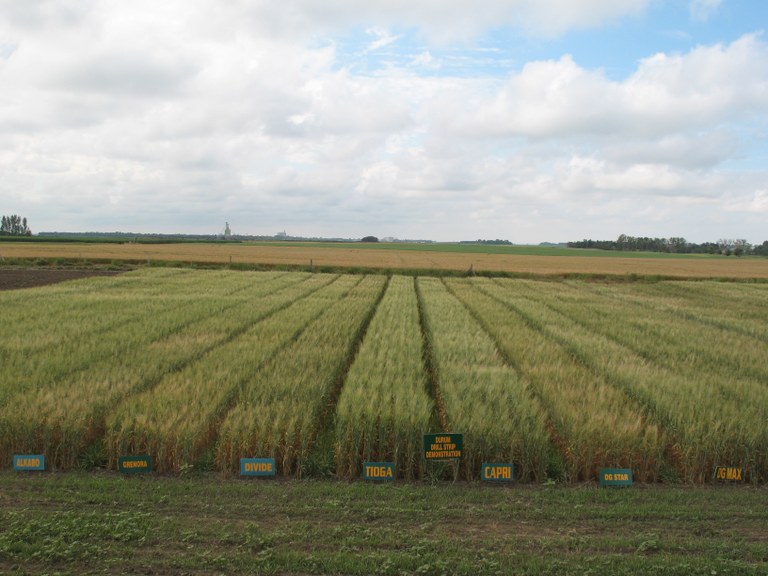25 Years of Elbows, Farfalle and Wagon Wheels
Since biblical times, man has cultivated wheat for food and feed. Durum and spring wheat are and always have been important crops in North Dakota with the state being the nation’s leader in acreage and production. The CREC conducts a broad scope of research projects annually that are intended to sustain the viability of wheat and durum production for both farmers and associated business enterprises.
The specific durum or wheat variety a farmer plants represents a major determining factor as to the viability of the crop and ultimately the quantity and quality of grain available to processors and the consumer. The CREC conducts many variety trials and manages breeder nurseries for the NDSU durum and wheat plant breeders. These trials include commercially available cultivars and an extensive number of experimental lines with only a few to eventually merit release as varieties to farmers. The data collected helps to define differences in grain yield, disease tolerance, agronomic traits, and end use quality.
Beyond contributing toward variety improvement, the CREC research team conducts a series of research trials in wheat and durum that address managing pests, improving plant nutrition, optimizing inputs and refining cultural production practices. The CREC annually tests new cereal herbicide and fungicide products years before they are commercially released along with crop inputs including micronutrients and biological products. Plant nutrients such as nitrogen, phosphorus and sulfur are evaluated in wheat to improve both yield and economic performance. Production practices such as crop rotations and tillage systems, use of cover crops, varied seeding rates and remote sensing techniques are examples of research to help producers manage wheat to optimize the crops competitiveness.

The CREC also conducts research on relatives of our common wheats, often referred to as “ancient grains”. Einkorn, emmer and spelt are evaluated under both organic and conventional environments. These wheat relatives are growing in demand and are utilized in many products including pasta. Durum variety trials conducted on certified organic land provide data to those farmers who sell into that market, which includes Dakota Growers Pasta Company.
As our neighbor, Dakota Growers Pasta Company celebrates 25 years of innovation in the pasta industry this summer. We’d like to congratulate them and wish them every success as they continue to provide a healthy market for durum and hard red spring wheat that our North Dakota farmers grow.
CREC Staff


